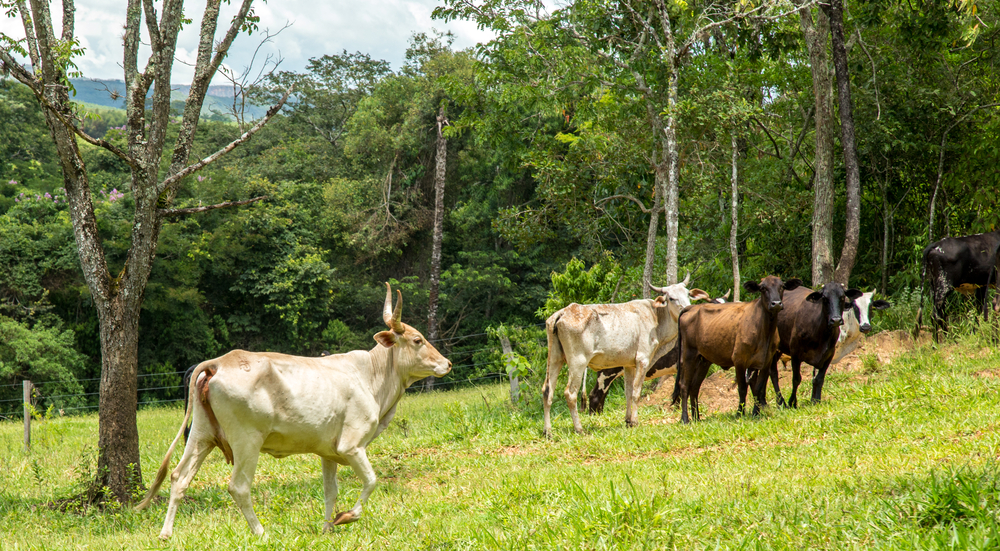Both institutions work to transform agri-food systems from livestock and rural development in the Americas.

San José, October 29, 2021 (IICA) – The development of livestock farming with a sustainability approach that supports the reduction of carbon emissions while providing a productive livelihood for thousands of families who dedicate themselves to this activity in the Americas are part of the actions that seek to transform the agri-food systems in the region.
For this process, to reach all the countries of the hemisphere, the Global Roundtable for Sustainable Beef (GRSB) and the Inter-American Institute for Cooperation on Agriculture (IICA) signed a technical cooperation agreement.
The alliance was further strengthened as a result of the Livestock Coalition, an initiative derived from the United Nations Food Systems Summit through which both institutions will work together to develop projects and events aimed at promoting sustainable beef.
“Livestock activity in the Americas is a crucial sector for sustainable development, food security and the economy, for this reason it is of the utmost importance that technological innovations, good practices and new knowledge reach every corner of our region, signing this agreement is a very important step for this to become a reality, ”said IICA Director General Manuel Otero.
IICA provides technical and logistical support to the Round Tables organized in Argentina, Mexico, Uruguay and previously in Colombia; spaces where actions to guarantee the sustainability of the sector are discussed, in addition to sharing and exchanging learning between the livestock roundtables of the region.
Josefina Eisele, GRSB Regional Director for Latin America, stated that “Collaboration with IICA in recent years has been fundamental for the formation of the National Round Tables. Both organizations share the vision of the importance of producing beef in a sustainable, environmentally friendly, socially responsible and economically viable way. With the signing of this Cooperation Agreement, the link between both organizations is strengthened and the foundations are laid to continue building an even more sustainable cattle and beef system with a focus on research, and investment in science and innovation”.
The objective of the agreement is to lay the foundations for the implementation of joint actions aimed at promoting a vision where beef is a reliable part of a prosperous food system, through research and communication of good livestock practices, responsible use of natural resources , knowledge management and increasing the capacity of producers.
The objectives also include promoting the productivity and sustainability of agricultural systems and the provision of ecosystem services, facilitating the exchange of scientifically validated information on aspects of livestock and its related issues.
These actions will be carried out through the support and exchange of information for the positioning of sustainable livestock within the framework of the United Nations Summit on Food Systems and subsequent activities derived from it. This also includes the positioning of sustainable livestock in other forums, conferences such as COP26 or similar meetings that discuss the role and impact of livestock.
About GRSB
The Global Roundtable for Sustainable Meat (GRSB) is a global network of people and organizations driving the advancement of sustainable meat. Through its global roundtable and 12 regional roundtables, GRSB has more than 500 members, working in 24 different countries. Together, its members are responsible for more than two-thirds of the cross-border beef trade.
GRSB drives progress in sustainable meat by setting ambitious goals around reducing greenhouse gas emissions, improving land use and animal welfare. To help achieve these goals, GRSB advocates best practices, facilitates knowledge sharing, and fosters a collaborative approach.
More information:
Institutional Communication Division.
comunicacion.institucional@iica.int











